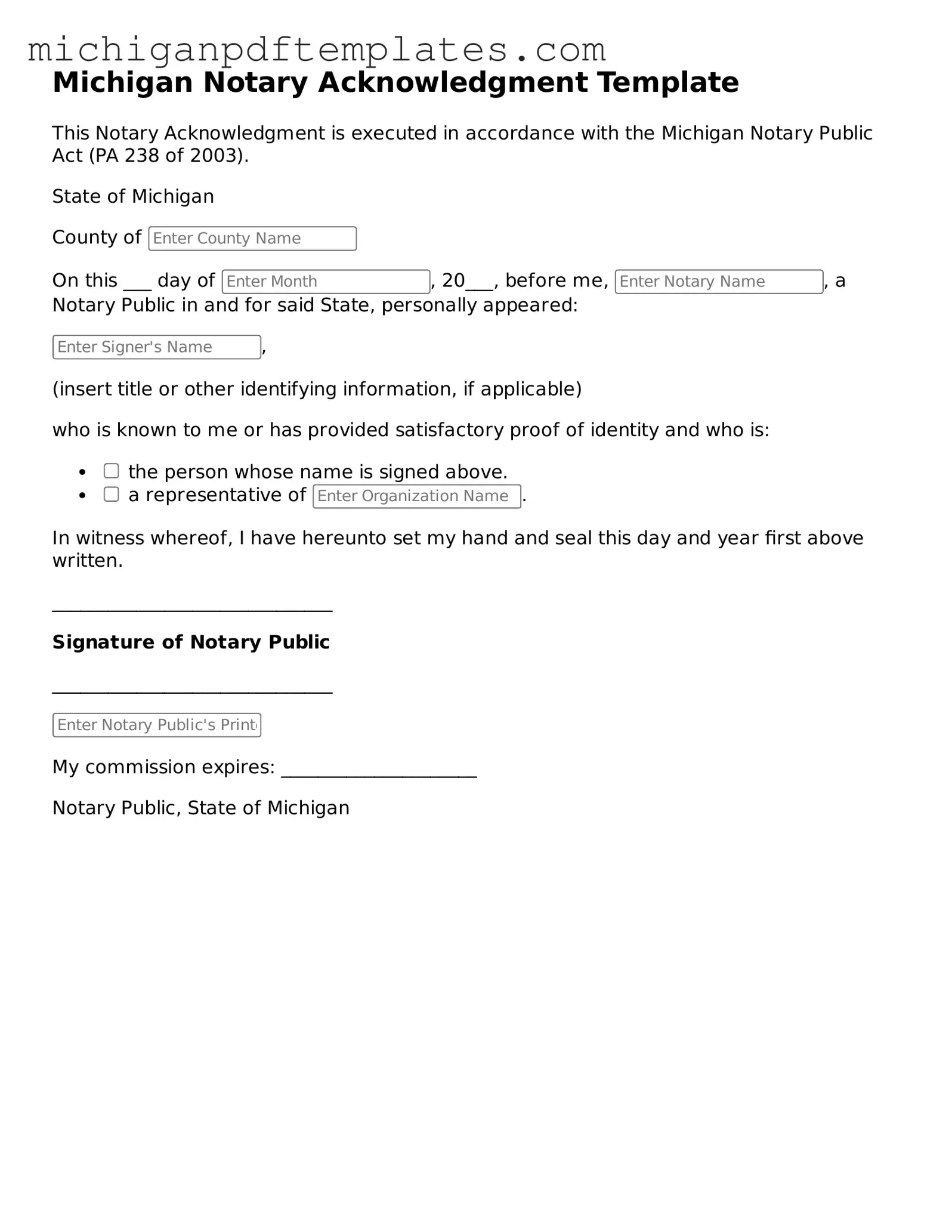Legal Michigan Notary Acknowledgement Template
The Michigan Notary Acknowledgement form is a legal document used to verify the identity of a signer and confirm that they willingly signed a document. This form is essential for ensuring the authenticity of various legal transactions. To get started on filling out the form, click the button below.
Get Your Form Now

Legal Michigan Notary Acknowledgement Template
Get Your Form Now

Get Your Form Now
or
▼ PDF Form
Finish this form quickly and move on
Fill in and complete Notary Acknowledgement online quickly.